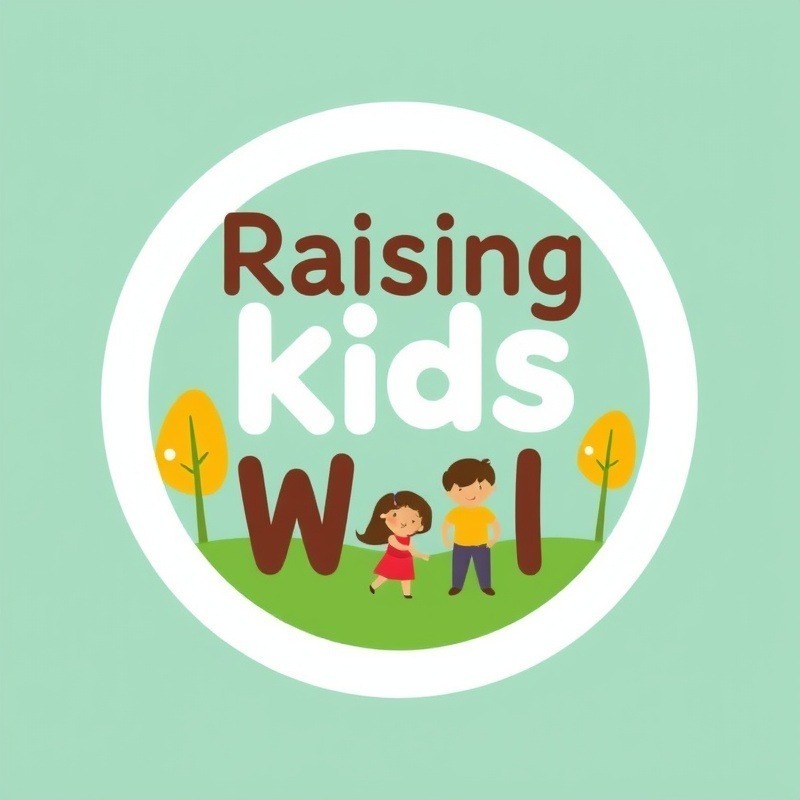Did you know? Children raised by authoritative parents are statistically more likely to excel academically and develop stronger mental health than those raised under other parenting styles. Research shows that these children are less likely to develop behavior problems, enjoy higher self-esteem, and achieve greater long-term well-being. But what exactly makes authoritative parenting so effective, and how can its principles be applied in real-world family life? In this comprehensive guide, you'll learn not only the definition and traits of authoritative parenting but also practical, expert-backed techniques proven to nurture your child’s growth and happiness.
The Impact of Authoritative Parenting: A Surprising Statistic
Studies reveal that children raised with the authoritative parenting style outperform their peers in both academic achievement and social development. According to data from multiple child development researchers, authoritative parenting promotes resilience, self-confidence, and adaptability in over 80% of observed cases. This result isn't just about setting firm rules—it's about balancing high expectations with empathetic guidance and emotional support.
Authoritative parents consistently set clear boundaries while remaining responsive to their children’s emotional needs. This balanced approach has a profound impact on a child’s self-regulation, problem-solving abilities, and overall mental health, making it the gold standard among parenting styles in modern developmental psychology.

What You'll Learn About Authoritative Parenting
Key traits of authoritative parents and the authoritative parenting style
How authoritative parenting compares with other parenting styles
Expert-backed authoritative parenting techniques and examples
Benefits for mental health and academic achievement in children
Understanding the Authoritative Parenting Style
What Is Authoritative Parenting? Defining the Authoritative Style
Authoritative parenting is a balanced parenting style that combines warmth, responsiveness, and structure. Unlike authoritarian approaches, which demand blind obedience, or permissive styles, which may lack boundaries, authoritative parenting encourages children to express themselves while also providing them with predictable rules and clear expectations. An authoritative parent sets firm limits but does so with compassion—always considering the child's feelings and nurturing their independence.
This style involves setting clear guidelines, engaging in positive parenting conversations, and using discipline as an opportunity to teach rather than punish. The authoritative style is often regarded as the most adaptive and effective approach, fostering children who are self-reliant, respectful, and resilient to behavior problems. As research on child development and parenting techniques advances, the authoritative approach continues to stand out for its proven benefits and real-life results.
Historical Perspective: How Authoritative Parenting Emerged
The development of authoritative parenting as a distinct parenting style is largely credited to developmental psychologist Diana Baumrind in the 1960s. Through numerous studies on parenting practices and their long-term effects on child development, Baumrind identified three primary parenting styles: authoritative, authoritarian, and permissive. The authoritative style quickly gained attention due to its positive outcomes across various cultural and socioeconomic backgrounds.
Over several decades, other researchers (including Hayek et al.) have reinforced Baumrind’s initial findings, observing that children who experience consistent, supportive environments coupled with high expectations tend to thrive both emotionally and academically. Today, the authoritative style is recognized not only for academic achievement and mental health but also for cultivating skills like empathy, responsibility, and adaptability—setting it apart from more traditional parenting styles that rely solely on discipline or permissiveness.
Authoritative Parent: Core Values and Principles
At the core of the authoritative parenting style lie values such as respect, open communication, and balanced discipline. Authoritative parents strive to model trustworthy behavior, give reasons for rules, and actively listen to their child’s concerns. This approach encourages children to participate in family decisions, shaping a supportive environment where they feel valued and understood.
Key principles include establishing firm limits that are consistently enforced, maintaining flexibility when necessary, and teaching responsibility through age-appropriate autonomy. Children raised in these homes are more likely to develop high self-esteem and intrinsic motivation, as their parents help them set realistic goals and handle mistakes in a constructive manner rather than resorting to harsh punishments. This balanced approach is what makes the authoritative style so effective in promoting emotional and academic success.

Key Traits of Authoritative Parents and the Authoritative Parenting Style
Emotional responsiveness and positive parenting
Setting clear boundaries with nurturing support
Encouraging independence balanced with accountability
Consistent discipline rooted in understanding, not punishment
Authoritative parents excel in emotional responsiveness, using positive parenting to foster a nurturing home. They set clear expectations and communicate boundaries kindly—never through fear or coercion. Instead, authoritative parenting techniques include calm discussions and logical consequences that let children understand the impact of their choices.
Independence is encouraged, but always within the structure of accountability. This blend of support and discipline empowers children to develop both confidence and resilience. Authoritative parents never confuse kindness with permissiveness; instead, they ensure discipline is rooted in understanding, not punishment. By cultivating trust and encouraging children to make mistakes and learn from them, the authoritative style forms the foundation for both emotional and academic achievement.
"Authoritative parenting fosters strong, supportive, and respectful relationships that influence both mental health and academic achievement." - Dr. Emily Jacobs, Child Psychologist

Table: Comparing Parenting Styles
Parenting Style |
Main Traits |
Typical Outcomes |
Real-Life Scenarios |
|---|---|---|---|
Authoritative |
Warmth, clear expectations, consistent discipline, encourages independence |
High self-esteem, strong mental health, excellent academic achievement |
Parent explains reasons for rules, supports with guidance, fosters problem-solving |
Authoritarian |
Strict rules, high expectations, low warmth, punitive discipline |
Obedient but less happy, risk of anxiety, lower social competence |
Parent enforces rules without explanation; demands obedience "because I said so" |
Permissive |
Supportive, few rules, high warmth, little discipline |
Low self-control, higher risk of behavior problems, struggles with structure |
Parent allows most choices without limits or consequences |
Uninvolved |
Low warmth, few interactions, absence of rules, neglectful |
Poor academic performance, low self-esteem, higher risk of problems |
Parent rarely supervises or engages; child's needs often unmet |
Authoritative Parenting Techniques: Practical Guides
Evidence-Based Authoritative Parenting Techniques
Setting clear expectations
Using natural consequences
Active listening and empathy
Fostering independence in children
Effective authoritative parenting techniques center around clarity, communication, and natural consequences. For instance, setting clear expectations involves explaining household rules and discussing their significance, rather than simply dictating them. When rules are broken, authoritative parents opt for natural consequences—letting a missed homework assignment result in a lower grade rather than meting out unrelated punishments. This approach nurtures problem-solving skills and personal responsibility.
Active listening is another cornerstone: authoritative parents genuinely listen to their children’s viewpoints and emotions, acknowledging feelings even when enforcing rules. By fostering independence, they let children make age-appropriate choices and learn from their outcomes, all within a safe and supportive framework. These techniques stand in contrast to less involved parenting styles, which may either neglect discipline or enforce rules rigidly without connection or empathy.
Watch how authoritative parents help children overcome homework challenges and develop critical thinking, offering guidance and encouragement rather than pressure or criticism. This real-life demonstration highlights the effectiveness of the authoritative parenting style in everyday family moments.
Authoritative Parenting Examples in Daily Life
Handling homework challenges: support and structure
Managing screen time: collaborative decision making
Resolving sibling conflict: balanced mediation
Authoritative parenting shines in complex, everyday scenarios. During homework struggles, authoritative parents offer support by sitting with their child, helping break tasks into manageable steps, and encouraging perseverance—rather than simply expecting perfection or ignoring difficulties. When it comes to screen time, these parents engage children in discussions about healthy limits, working together to create rules the whole family supports.
In cases of sibling conflict, the authoritative parent steps in as a fair mediator. Instead of taking sides or imposing arbitrary punishments, they facilitate a conversation, listen to each child's perspective, and guide them toward a mutually respectful solution. These examples show how the authoritative approach promotes both personal accountability and cooperative problem-solving.

Benefits of Authoritative Parenting for Mental Health and Academic Achievement
Lower anxiety and depression rates
Higher self-esteem in children
Improved grades and motivation
Children raised in an authoritative parenting style environment consistently experience stronger mental health and improved academic achievement. Numerous studies confirm that these kids demonstrate lower rates of anxiety and depression compared to peers raised by authoritarian, permissive, or uninvolved parents. The emotional support and open communication provided by authoritative parents promote resilience and optimism.
Academically, children benefit from high yet realistic expectations, frequent encouragement, and meaningful involvement from parents. This translates to better grades, higher workplace motivation, and greater satisfaction with learning—outcomes that persist into adulthood. The authoritative style’s unique combination of structure and empathy offers the optimal environment for raising capable, well-adjusted children.

Leading psychologists and parenting experts explain why authoritative parenting produces optimal outcomes for both mental health and academic performance in children. Hear evidence and advice from professionals in the field.
Authoritative Parenting Versus Other Parenting Styles
How Does Authoritative Parenting Compare to Authoritarian, Permissive, and Uninvolved Styles?
While all parenting styles stem from a desire to raise well-adjusted children, not all approaches nurture mental health and independence alike. The authoritarian parent is known for strict rules and limited warmth, emphasizing obedience at the cost of confidence. Permissive parents, in contrast, are loving but set few boundaries—leading to poor self-control in their children. Uninvolved parents, meanwhile, offer minimal structure or emotional support, often resulting in academic and behavioral problems.
Authoritative parenting stands out for its balance: firm limits are set and enforced with understanding, and emotional availability is high. Children raised in this style are not only more resilient but often do better in school, develop healthier peer relationships, and demonstrate greater problem-solving abilities. The clear communication at the heart of the authoritative approach fosters a unique mix of respect, autonomy, and security rarely seen in other styles.

The Role of Parenting Techniques Across Parenting Styles
Techniques such as active listening, consistent boundaries, and positive reinforcement are not exclusive to the authoritative style, but how and when they are applied makes a significant difference. Whereas an authoritative parent may involve their child in decision-making and enforce rules with empathy, an authoritarian counterpart employs the same boundaries more rigidly and without feedback. Permissive or uninvolved styles may forgo structure entirely, resulting in less predictable or effective outcomes for the child.
What sets authoritative parenting techniques apart is the intentional, thoughtful use of discipline and guidance as teaching moments. Over time, this approach fosters self-motivation and encourages children to internalize positive behaviors rather than simply following rules to avoid punishment. Ultimately, children of authoritative parents learn not just what is expected—but why, preparing them for the complex challenges they will face as adults.
"While many parenting styles have merits, authoritative parenting often results in the healthiest long-term development." —Dr. Rachel Lin, Developmental Psychologist
Challenges and Myths Surrounding Authoritative Parenting
Misconceptions about permissiveness
Real-world barriers: stress, cultural expectations, and adaptation
How to start shifting your approach gradually
One of the most common myths is that authoritative parenting is the same as being permissive or “soft.” In reality, authoritative parents actively set firm boundaries and expectations, just as their authoritarian counterparts do—but balance these with warmth and open communication. Real-world barriers such as parental stress, limited resources, and cultural beliefs may make adopting an authoritative approach challenging, but even small steps can make a difference.
To shift towards an authoritative parenting style, start with one or two changes—like opting for active listening over immediate correction, or involving your child in setting house rules. Over time, these adjustments foster a supportive, structured family environment without the need for a complete overhaul.
People Also Ask About Authoritative Parenting
What is authoritative parenting with examples?
Authoritative parenting is a balanced parenting style where parents provide structure, support, and high expectations while remaining emotionally responsive. For example, an authoritative parent might set a rule about finishing homework before screen time, explain the reasons behind the rule, and listen to any concerns the child has—adjusting expectations as needed while maintaining accountability.
Why is authoritative parenting the best?
Studies confirm that authoritative parenting produces the best outcomes for mental health, academic achievement, and overall development. This style fosters independence, self-esteem, and a secure parent-child bond, while also teaching children how to manage mistakes and resolve problems constructively.
What is the most effective parenting style?
Research overwhelmingly supports that the authoritative parenting style is the most effective, due to its unique combination of warmth, structure, and high expectations. Children raised in authoritative homes typically excel both socially and academically, enjoying the benefits of secure attachment and adaptive life skills.
What is the difference between authoritarian and authoritative parenting?
Authoritarian parents enforce rules rigidly, with little room for discussion or empathy, while authoritative parents blend structure with support. Authoritative parenting emphasizes explanation, listening, and mutual respect, creating a more adaptive and positive environment for children’s growth.
Frequently Asked Questions About Authoritative Parenting
Are authoritative parents ever too lenient?
How can I adopt more authoritative parenting techniques?
Does authoritative parenting change as a child grows older?
While authoritative parents balance nurture and structure, they are careful not to become too lenient. To adopt more authoritative parenting techniques, start by setting clear expectations and using natural consequences, then practice active listening and empathy daily. As children grow older, authoritative parenting evolves, allowing more autonomy and independence while maintaining trust and open communication.
Key Takeaways on Authoritative Parenting
Authoritative parenting creates resilient, confident children
This parenting style supports positive academic and mental health outcomes
Adopting authoritative parenting can be a gradual, rewarding journey for families
Summary and Next Steps
Embracing authoritative parenting empowers families to nurture resilient, capable, and compassionate children. Begin by making small, consistent changes—prioritizing open communication, respectful discipline, and meaningful support.
 Add Row
Add Row  Add
Add 



Write A Comment